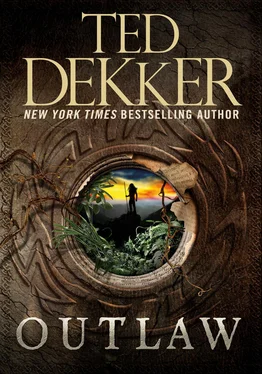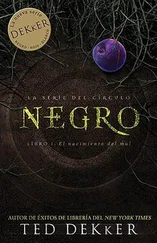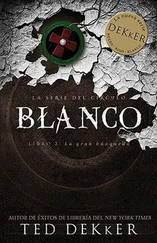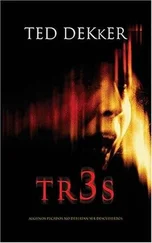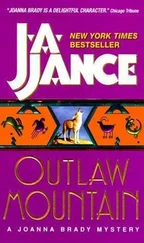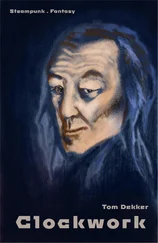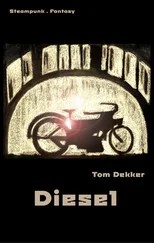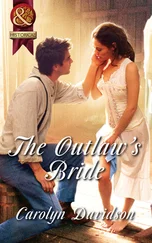That night the bag was again removed from my head in a heavy downpour. Again a gourd of water was tilted to my lips, and again I sucked at the water in long, deep drafts. For the second time since my capture I was able to see the leader, who tended to me. It was he who first gave me food.
I say food, but at the time I wondered if it was the mud scraped off the bottoms of his feet. The gray paste that he held in his fingers and pushed into my mouth tasted like a flour glue that had started to rot. Something squishy was mixed with the starchy compound. I know now that it was a sago grub—a thick white worm half the length of a finger that feeds on the pith of the sago palm.
My mother had always claimed that I was the pickiest of eaters. I was the last of her daughters to try fish, the last to taste escargot—and then only once, after my uncle coaxed me into it with a bribe of twenty dollars. I liked my meat well done and my hamburgers plain. I could barely handle biscuits and gravy, and mashed potatoes were passable only as long as they weren’t too smooth. With these exceptions, no gooey thing ever went into my mouth.
But I hadn’t eaten in nearly three days, and so I stared into the man’s brown eyes and swallowed his offering whole, desperate for any kind of nourishment.
The leader returned my stare without interest before pushing another handful of the paste into my mouth. He then pulled the sack over my head and left me free to breathe without the gag.
Despite the heavy rain, I slept that night.
The next morning my caretaker repeated the procedure. Off with the leeches. On with the mud. He replaced the gag, this time over the hood. Back in the canoe. Up the river.
No speaking, no chanting, no laughter, nothing but the steady breathing and gurgling of paddles as they were drawn through the water.
I was only half-alive. Deadened by sorrow over my child’s fate. Suffocated by self-pity. Barely strong enough to lie still, knowing that any attempt to change my predicament would surely worsen it.
The men had come a very long way—that much was now clear. I found moments of comfort in the likelihood that they would only carry very important cargo for so many miles into the jungle. They didn’t act like warriors celebrating any great feat, nor like mindless savages given to causing disturbances.
They carried themselves with utmost assurance and purpose, sure of their every move, contained and unruffled. They dominated their world without fear. Indeed, they seemed rather bored with it all.
When it seemed to me that nothing would ever change, our journey upriver came to an end sometime after noon on the third day.
For the first time since I’d joined them, my captors began to speak freely as they pulled the canoes up the bank with me still aboard. Their tones were low, and the speed of their speech rather than its volume expressed a new enthusiasm among them.
I’d surrendered my exhaustion to the unceasing murmur of paddles dipping into water, and to the gentle, musical quality of their voices, comforted by the fact that they had not killed me. But now any semblance of peace ended and my skin prickled with the uncertainty that faced me.
Two men hauled me out of the canoe and dropped me onto firm ground. I landed with enough force to knock the wind out of my lungs.
One of them gently nudged me with his foot and spoke what I assume were instructions. When I failed to respond, he nudged me again and presumably asked if I’d understood him.
Still gagged, I offered him the only thing I could, a mere grunt.
This seemed to satisfy him. My hands and feet were loosed, then strapped securely to a pole. In less time than it took me to grasp their intentions, they had me hanging from the pole between them and were marching into the jungle.
My sore neck couldn’t support the weight of my head, so I let it hang. My skull struck objects on the ground twice. Both times I cried out into my gag. Both times the carrier at my feet expressed surprise and lifted the pole higher for a moment before setting it back on his shoulder.
This is how, in August of 1963, I came into the valley known as Tulim: strapped to a pole like a bag of beans, carried like a bundle of bananas, swinging above the ground like a slain pig.
Surely I had been presumed lost at sea along with Stephen. Someone would find the shattered pieces of sailboat, and after a cursory search along the coast my sisters would weep and hold our funeral in the graveyard behind the First Baptist Church. My father would weep, my mother would cry.
But my father and mother were already dead.
And now so were my son and I.
I knew by distant cries that we had reached a village. At first there was only one utterance, a long whooping call that I briefly mistook for that of a bird.
Within moments the single cry was joined by a dozen more, and then by hundreds of voices whooping in unison, and a stampede of bare feet. They began to pound the earth with their heels, carefully in time with the chanting, making a kind of music of its own.
Uhm, uhm, uhm, uhm.
Deep and guttural, the sound shook me to my bones. This was the warriors’ welcome home.
Inside the bag my eyes were wide and my breathing was frantic. Imagined or not, I could feel hundreds of eyes staring at my cocooned body as my captors marched me through the throng.
A single voice silenced the others, calling above them in a long, melodic string of words. Within a few seconds the caller stopped and the chorus resumed.
Uhm, uhm, uhm, uhm.
We marched on.
I began to tremble in my sack.
Then the solitary melodic voice again, followed by the chorus and the pounding agreement. Uhm, uhm, uhm, uhm.
Children ran alongside us, whispering and giggling. Women joined in with high cries between the lower chants, like cymbals between drumbeats.
And then the pinpricks of light vanished from my hood. The rhythmic mantra fell away. The darkness deepened and the air grew slightly cooler, thick with an earthy scent. A door or a gate of some kind was closed, muting the voices to a distant burble. I was marched deep into the earth and dropped into a large hole in the ground.
No parting words of instruction, no encouragement, no sign my carriers either cared or did not care that I’d been brought into their village.
They simply left.
I was in my new home.
I was in hell.
Chapter Five
AN UNCLE had taken me and my sisters camping once. I’d spent only one night on the lumpy earth before deciding that I hated tents. The ground was hard, the smoke was rank, the night was cold, the bugs were everywhere, and I was not a happy camper. Only my sisters’ willingness to brave the harsh environment convinced me to stay the second night.
Compared to the dank holding cell into which I’d been thrown, that tent was a palace.
The air was cool underground, but I couldn’t appreciate the reprieve from the oppressive heat. At least in the boat I’d had gentle rocking and birdcalls to settle my thoughts.
In that dungeon I had nothing but my own mind to keep me company, and it was clogged with impossibilities that had somehow, through the most cruel twist of fate, become certainties.
The sea had taken my life. The jungle had stripped me of my dignity. The gods of the earth had taken my soul.
During those three days on the river, my mind had frequently gone to God, begging him to deliver me, clinging to the vaguest hope that there might be more to my faith than mere fantasy. But there in that hole, a seed of bitterness took root deep in my heart.
The dream that had drawn me across the ocean felt like a smudge on the edge of my consciousness. I cringed every time it slithered back into my memory, though the dream itself had not returned since I’d left Atlanta.
Читать дальше
